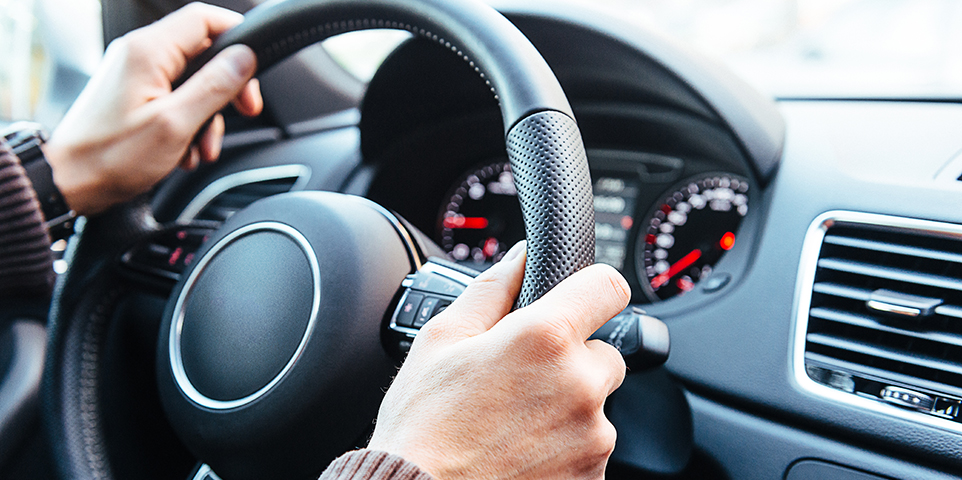
Auto insurance basics—understanding your coverage
The basic personal auto insurance mandated by most U.S. states provides some financial protection if you or another driver using your car causes an accident that damages someone else’s car or property, injures someone or both.
But to make the best decisions about purchasing other types of auto insurance coverage you might need, you’ll want to understand what’s covered, what’s not covered and what’s optional. In addition to understanding types of coverage, you’ll also want to consider coverage amounts.
Why? Because state-required minimums may not cover the costs of a serious accident, so it’s worth considering purchasing higher levels of coverage.
Here’s a rundown of the types of coverage available—some are required; others are optional; all are priced individually (a la carte) to let you customize coverage amounts to suit your exact needs and budget.
Mandatory coverage
Nearly every state requires car owners to carry the following auto liability coverage:
- Bodily Injury Liability — This covers costs associated with injuries and death that you or another driver causes while driving your car.
- Property Damage Liability — This coverage will reimburse others for damage that you or another driver operating your car causes to another vehicle or other property, such as a fence, building or utility pole.
Frequently required coverage
Many states require that you carry the following coverage:
- Medical Payments or Personal Injury Protection (PIP) — Provides reimbursement for medical expenses for injuries to you or your passengers. It will also cover lost wages and other related expenses.
- Uninsured Motorist Coverage — Reimburses you when an accident is caused by an uninsured motorist—or in the case of a hit-and-run. You can also purchase under insured motorist coverage, which will cover costs when another driver lacks adequate coverage to pay the costs of a serious accident.
Even if these types of coverage are optional in your state, consider adding them to your policy for greater financial protection.
Optional coverage
While basic, legally mandated auto insurance covers the cost of damages to other vehicles that you cause while driving, it does not cover damage to your own car. To cover this, you need to purchase the following optional auto insurance coverages:
- Collision — This optional coverage reimburses you for damage to your car that occurs as a result of a collision with another vehicle or other object—e.g., a tree or guardrail—when you’re at fault. While collision coverage will not reimburse you for mechanical failure or normal wear-and-tear on your car, it will cover damage from potholes or from rolling your car.
- Comprehensive — This provides coverage against theft and damage caused by an incident other than a collision, such as fire, flood, vandalism, hail, falling rocks or trees and other hazards—even getting hit by an asteroid!
- Glass Coverage — Windshield damage is common, and some auto policies include no-deductible glass coverage, which also includes side windows, rear windows and glass sunroofs. Or you can buy supplemental glass coverage.
Mind the gap… insurance
If you lease or finance your vehicle, auto dealers or lenders will likely require you to purchase collision and comprehensive. But keep in mind that collision and comprehensive only cover the market value of your car, not what you paid for it—and new cars depreciate quickly. If your car is totaled or stolen, there may be a “gap” between what you owe on the vehicle and your insurance coverage. To cover this, you may want to look into purchasing gap insurance to pay the difference. (Note: For leased vehicles, gap coverage is usually rolled into your lease payments.)
Who is covered—and when?
Your auto policy will cover you and other family members on your policy, whether driving your insured car or someone else’s car with permission. Your policy also provides coverage if someone not on your policy is driving your car with your consent.
Your personal auto policy only covers personal driving, whether you’re commuting to work, running errands or taking a trip. Your personal auto policy, however, will not provide coverage if you use your car for commercial purposes—for instance, if you deliver pizzas or operate a delivery service. Note, too, that personal auto insurance will generally not provide coverage if you use your car to provide transportation to others through a ride-sharing service such as Uber or Lyft. Some auto insurers, however, are now offering supplemental insurance products (at additional cost) that extend coverage for vehicle owners providing ride-sharing services.
Comments
Post a Comment